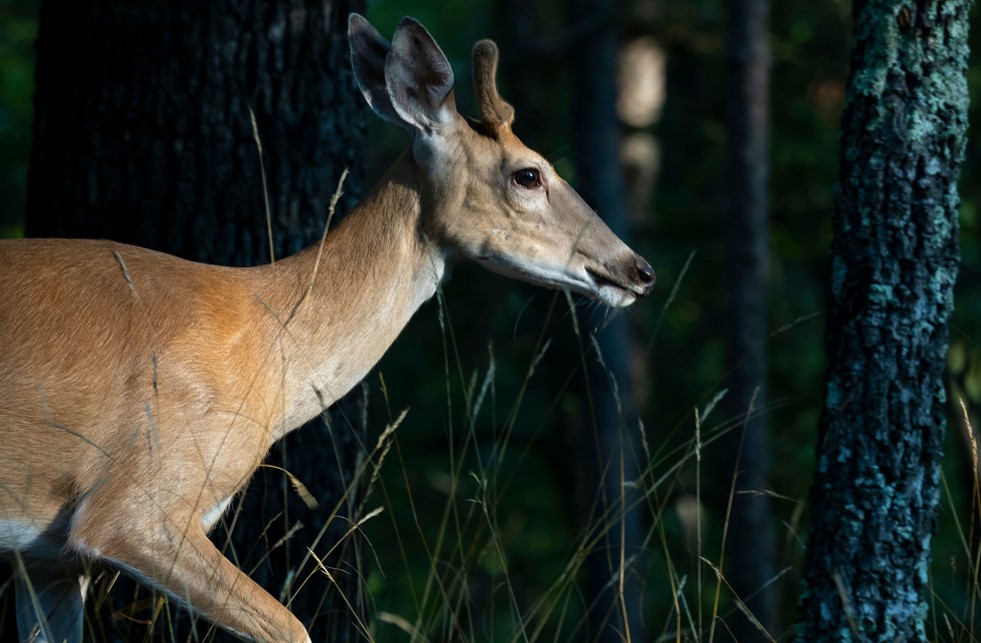
Agricultural News
Safeguard Wildlife from Aflatoxins in Grain
Thu, 23 Sep 2021 13:34:04 CDT
 Property owners who put out grain to attract wildlife species need to make sure the bait does not contain aflatoxins, Dwayne Elmore, Oklahoma State University Extension wildlife management specialist, said.
Property owners who put out grain to attract wildlife species need to make sure the bait does not contain aflatoxins, Dwayne Elmore, Oklahoma State University Extension wildlife management specialist, said.
High aflatoxin levels can create health issues in wildlife as well as livestock, such as immune-response problems that can increase susceptibility to disease and liver failure. The chemicals also can cause reproductive issues, such as wild turkeys laying fewer eggs.
The Aspergillus fungus that produces aflatoxins occurs naturally in the soil and may be transported to grain crops by wind or insects.
"Environmental stresses such as high temperatures, drought conditions and insect infestation can damage grains and make them susceptible to aflatoxin contamination," he said. "Use thoughtful purchase, storage and feed-dispersal practices to reduce the risk of toxicity in wildlife."
Elmore recently provided additional insights about wildlife and aflatoxin-infected grains on the agriculture television show SUNUP.
OSU Extension recommendations for purchasing grain as wildlife bait include the following:
- Avoid grains with visible signs of mold growth, which might be an indicator that aflatoxins are present.
- Do not buy grains that are clumped together as this may indicate the initial stages of mold growth.
- Always purchase grain from reputable dealers, taking care to avoid damaged or waste grain.
- Only purchase grain planned for use in the immediate future.
"A reputable grain dealer should be able to tell a buyer about the levels of aflatoxins present in a product," Elmore said. "Ask and make sure. Be aware most grains packaged specifically for wildlife are not tested as rigorously as those for consumption by livestock."
Avoid storing bait grain for an extended period. Aflatoxin contamination increases with length of time, regardless of how it is stored. Stored grain must be kept dry. Temperature fluctuations can cause condensation within a storage container. Check the grain regularly and often. Dispose of any grain where mold is beginning to form or insect contamination is evident.
Feeding should be limited to times when temperatures are below 60 degrees and should not be conducted when rain or high humidity is expected. Use grain sorghum or milo rather than corn, which has a higher risk of aflatoxin build-up. Never refill grain without first emptying, cleaning and fully drying the feeders.
"It's a good idea to review whether supplemental feeding of wildlife is actually meeting the property owner's management objectives," Elmore said. "The practice inherently has other risks associated with it, such as increased potential for disease transmission and increased predation."
Property owners may want to take advantage of alternatives to baiting with grains. For example, white-tailed deer can be fed protein pellets.
OSU Extension fact sheets detailing research-based information about managing for wildlife are available online and through all county Extension offices.
WebReadyTM Powered by WireReady® NSI
Top Agricultural News
More Headlines...



















